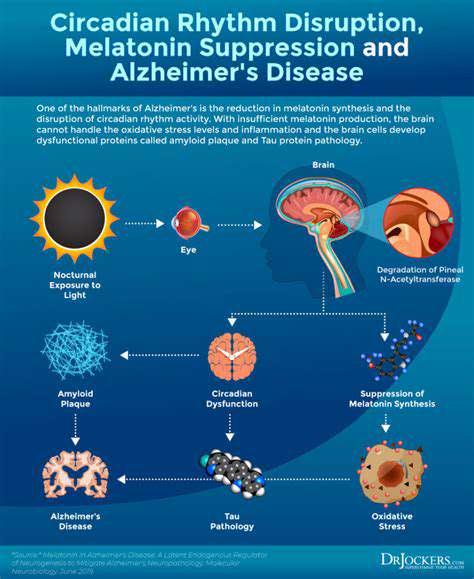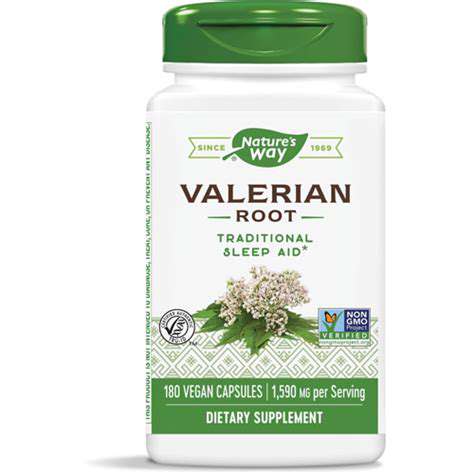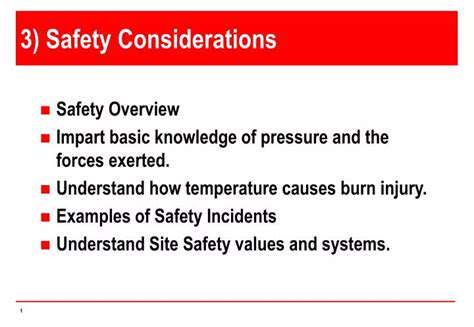Best Supplements for Sleep Improvement

Melatonin's Role in Regulating Sleep
Melatonin, a hormone naturally produced by the pineal gland, plays a crucial role in regulating the sleep-wake cycle. This intricate process, known as the circadian rhythm, is essential for overall health and well-being. When darkness falls, the pineal gland synthesizes and releases melatonin, signaling the body to prepare for sleep. Its presence in the bloodstream promotes relaxation and drowsiness, easing the transition into deep, restorative sleep.
The body's natural production of melatonin typically peaks at night and declines in the morning, following the natural light-dark cycle. This rhythmic release helps synchronize various bodily processes with environmental cues, ensuring optimal physiological function.
The Science Behind Melatonin Production
Light exposure directly influences melatonin production. When darkness is detected by the eyes, a signal travels to the suprachiasmatic nucleus (SCN) in the hypothalamus. The SCN then prompts the pineal gland to release melatonin. This light-dark interplay forms the foundation of our internal biological clock.
Multiple factors can affect melatonin production, including age, dietary habits, and lifestyle choices. Recognizing these influences can help individuals optimize their natural melatonin levels for better sleep quality.
Melatonin and Sleep Disorders
Many people turn to melatonin supplements to address sleep disorders like insomnia. Those struggling to fall or stay asleep might benefit from carefully timed melatonin supplementation. However, effectiveness varies between individuals and specific sleep issues. Professional medical advice should always precede any sleep aid regimen.
Chronic sleep disturbances can profoundly impact quality of life and overall health. Addressing these issues through appropriate interventions, including potential melatonin supplementation, remains crucial for restoring healthy sleep patterns.
Melatonin's Impact on Other Physiological Processes
Beyond sleep regulation, melatonin may offer antioxidant protection, supporting cellular health and potentially reducing oxidative stress. Ongoing research continues to explore its therapeutic potential in various health contexts.
While preliminary findings appear promising, more comprehensive research is needed to fully understand melatonin's effects and potential applications across different health conditions.
Safety and Considerations Regarding Melatonin Use
Though generally safe, melatonin supplements aren't appropriate for everyone. Individuals with medical conditions, pregnant or breastfeeding women, or those taking medications should consult a healthcare provider before use. Proper dosage and duration require careful consideration to avoid potential side effects.
Possible interactions with medications, particularly those for cardiovascular conditions, necessitate professional guidance before incorporating melatonin into one's routine.
Magnesium: A Relaxation Catalyst
Magnesium's Role in Sleep
Magnesium plays a crucial role in regulating muscle and nerve function. Deficiency can lead to muscle cramps, spasms, and sleep disturbances. By supporting proper nerve signaling and muscle relaxation, magnesium contributes to more restful sleep. Maintaining adequate magnesium levels often proves essential for quality sleep.
Stress Reduction and Magnesium
As a significant contributor to sleep problems, stress finds a natural opponent in magnesium. This mineral helps regulate the body's stress response by calming the nervous system, reducing anxiety and tension that interfere with sleep. This calming effect can dramatically improve sleep quality.
Magnesium's ability to moderate cortisol levels, the primary stress hormone, proves particularly beneficial for stress-related sleep issues. This hormonal regulation creates a more balanced internal environment conducive to restful sleep.
Magnesium and Muscle Relaxation
Muscle tension frequently disrupts sleep. Magnesium's essential role in muscle relaxation helps create physical comfort necessary for uninterrupted sleep. This physical relaxation often translates to mental calmness, further supporting the sleep process.
Magnesium and Neurotransmitter Function
Magnesium participates in producing and regulating neurotransmitters like GABA, which calms the nervous system. Adequate magnesium levels ensure proper neurotransmitter function, leading to improved sleep quality through better neurochemical balance.
Magnesium Absorption and Sleep
Multiple factors influence magnesium absorption, including diet, other nutrient intake, and overall health. Understanding absorption mechanisms helps maximize magnesium's sleep benefits. A magnesium-rich diet combined with healthy lifestyle choices enhances absorption and sleep quality. Proper hydration and limiting caffeine/alcohol intake also play important roles.
Magnesium-Rich Foods for Better Sleep
Incorporating magnesium-rich foods like leafy greens, nuts, seeds, and whole grains provides a natural approach to improving sleep. Dietary adjustments combined with potential supplementation can address deficiencies and promote better sleep.
Magnesium Supplements for Sleep
When dietary sources prove insufficient, magnesium supplements may help. However, professional guidance ensures proper dosage and identifies potential medication interactions. Selecting high-quality products and following usage recommendations remains essential for safe, effective supplementation.

Other Potential Sleep Supplements: A Note of Caution
Melatonin: Understanding Its Benefits and Limitations
As a natural hormone regulating the sleep-wake cycle, synthetic melatonin helps many with insomnia or jet lag by promoting faster sleep onset. However, improper timing or excessive doses may cause dizziness, headaches, or circadian disruption. Medical supervision becomes particularly important for those on medications or with health conditions.
Valerian Root: An Herbal Approach with Caution
This traditional herbal remedy for sleep and anxiety has shown mixed scientific results regarding effectiveness. Limited long-term safety data suggests cautious use and professional consultation before incorporating valerian into sleep routines.
Magnesium Supplements: Supporting Relaxation and Sleep Quality
Essential for nerve and muscle function, magnesium supplementation may improve sleep, especially in deficient individuals. While it may reduce cortisol and promote calmness, excessive intake can cause digestive issues, and those with kidney concerns require medical advice before use.
L-Theanine: A Natural Calm-Inducing Amino Acid
Found primarily in tea, L-theanine promotes relaxation without sedation, potentially reducing stress-related sleep barriers. Effects vary individually, and high doses may cause headaches or digestive discomfort, warranting moderation and professional guidance.
5-HTP (5-Hydroxytryptophan): Potential for Sleep and Mood Regulation
As a serotonin precursor, 5-HTP may help those with serotonin-related insomnia, though risk of serotonin syndrome with certain medications necessitates professional oversight.
GABA Supplements: Examining Their Efficacy and Safety
While marketed for their calming properties, GABA supplements' ability to cross the blood-brain barrier remains questionable. Potential side effects like dizziness or tingling emphasize the need for proper dosing and medical consultation.
Risks and Precautions When Using Sleep Supplements
Over-the-counter sleep supplements carry potential risks ranging from mild discomfort to serious interactions. Quality evaluation, proper dosing, and professional consultation ensure supplements complement rather than replace healthy sleep practices and lifestyle adjustments.
Read more about Best Supplements for Sleep Improvement
Hot Recommendations
-
*Guide to Managing Gout Through Diet
-
*Best Habits for Financial Well being
-
*How to Build a Routine for Better Mental Health
-
*How to Eat Healthy on a Budget [Tips & Meal Ideas]
-
*Guide to Practicing Self Acceptance
-
*How to Incorporate More Movement Into Your Day
-
*Guide to Managing Chronic Pain Naturally
-
*Guide to Building a Reading Habit for Well being
-
*Top 5 Weight Loss Supplements That Actually Work
-
*Best Exercises for Postpartum Recovery [Beyond Abdominal Work]
![Best Books on Mental Health and Well being [Recommended Reads]](/static/images/26/2025-05/CultivatingSelf-CompassionandPositiveSelf-Talk.jpg)










